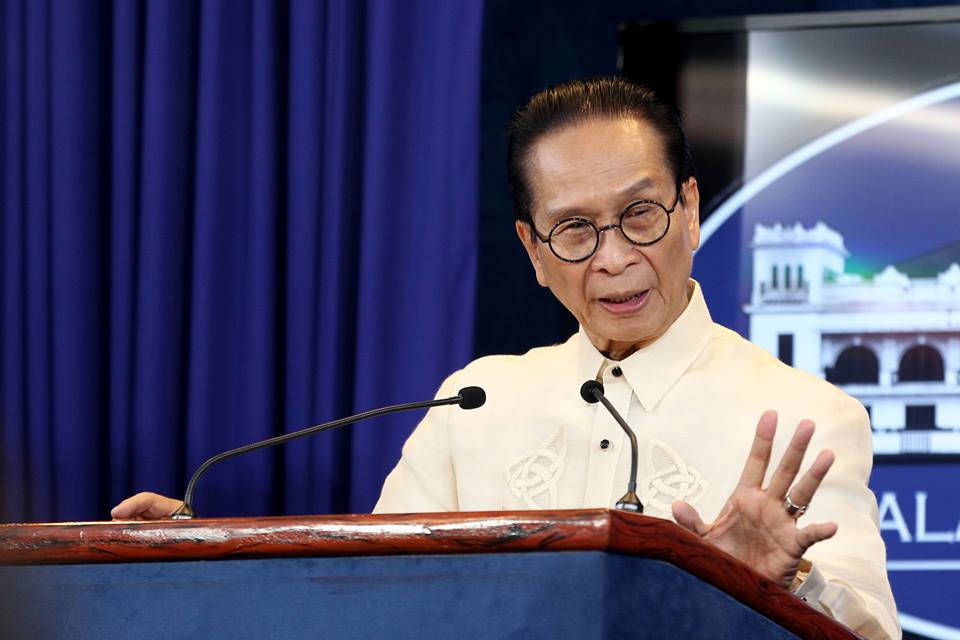News
Wiretapped info on narco list can’t be used as evidence: solons

Senator Panfilo Lacson questioned Presidential Spokesperson Salvador Panelo’s claim that the information involving personalities and political figures with drug links were sourced from wiretapped communications done by foreign governments. (File Photo: Office of the Presidential Spokesperson/Facebook)
MANILA — Two senators on Wednesday said illegally wiretapped information, even if provided by foreign governments, is a “fruit of the poisonous tree” and therefore inadmissible in court.
Senator Panfilo Lacson questioned Presidential Spokesperson Salvador Panelo’s claim that the information involving personalities and political figures with drug links were sourced from wiretapped communications done by foreign governments.
Fruit of the poisonous tree is a legal doctrine which describes evidence obtained indirectly through illicit means and is inadmissible in court.
“Malacañang’s claim that the narco list information is based on wiretaps done by foreign governments doesn’t make things right — unless those who conducted the wiretap were armed with judicial authorization in which case, the proceeds should have been used as evidence in court as it has strong probative and evidentiary value to prosecute the personalities involved,” Lacson said.
“Upon the other hand, if the wiretap is done illegally, it is nothing but the fruit of a poisonous tree,” he added.
Senator Franklin Drilon echoed Lacson’s remark, saying the wiretapped information “has no value at all.”
“It cannot be used as evidence, having been obtained illegally. In law, such ‘wiretapped’ information is the ‘fruit of the poisonous tree’ not admissible as evidence,” Drilon said.
Earlier, Panelo said there is nothing wrong with receiving wiretapped communications from foreign countries even though wiretapping is illegal under Philippine law.
Republic Act 4200, or the Anti-Wiretapping Law, prohibits the tapping of any wire or cable or using other devices to record, intercept, or secretly overhear any private communication or spoken word when it is unauthorized by all parties in the conversation, except when it is done pursuant to a court order.
The list of politicians allegedly involved in the illegal drug trade is set to be made public next week to enable voters to make a “wise choice” in May’s mid-term elections.
“We hope to release it next week. We are vetting it right now. We are making sure of the list,” Department of the Interior and Local Government (DILG) spokesperson, Undersecretary Jonathan Malaya, said in a phone interview Wednesday.
While several senators have opposed the disclosure of the names on the list, Malaya said the public has the right to be informed regarding this matter.
“To us, since the election is coming and we want to eradicate drugs, the people should be aware of the protectors, the coddlers of drug syndicates. We have a different opinion with the senators,” he added.





















